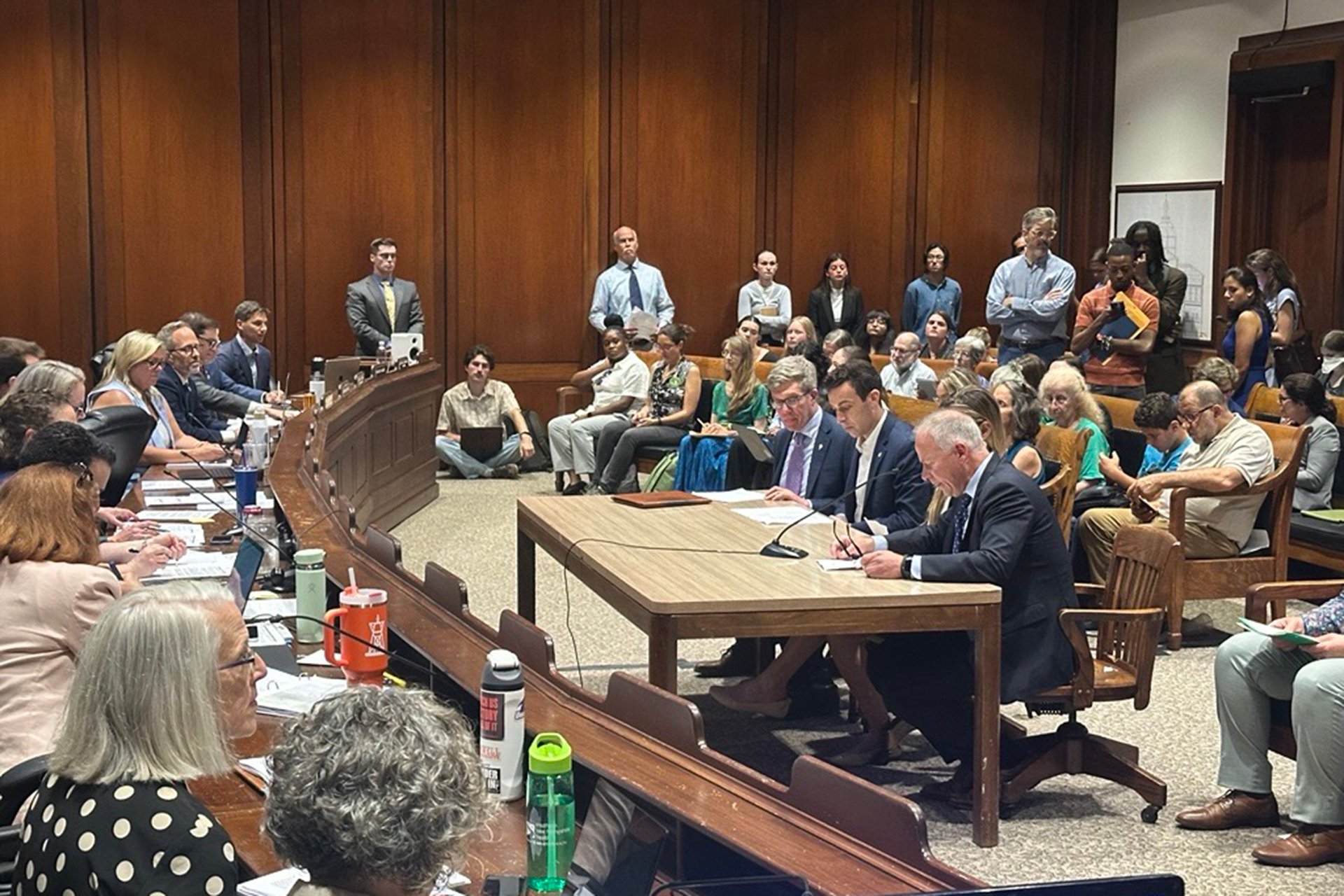Earlier this week, Mass Audubon’s President David O’Neill testified in front of the Joint Committee on Environment & Natural Resources in support of critical investments in nature outlined in the Environmental Bond Bill, colloquially titled the “Mass Ready Act”.
He testified alongside Lieutenant Governor Kim Driscoll, Energy and Environment Secretary Rebecca Tepper, Administration and Finance Secretary Matt Gorzkowicz, and leaders from other environmental orgs from across the state to shine a spotlight on the importance of the bill, which advances critically important nature, biodiversity, access, and climate goals.
What is the Mass Ready Act?
To make investments in large projects and infrastructure, the state will issue “bonds,” which is a term that means borrowing to finance its priorities. The bonds need to be authorized by the legislature every few years, and next year most Energy and Environmental Affairs (EEA) authorizations will expire.
Because of this, Governor Healey has filed a new bonding proposal, called the Mass Ready Act, with the legislature that will authorize nearly $3 billion in investments for environmental and climate priorities over the next six years.
Environmental Priorities Contained in the Mass Ready Act
Among the most pertinent in regard to responding to climate change, we are pleased to see included in the bond bill new investments in infrastructure that will help our communities be more resilient to extreme weather and other climate risks. There’s also continued priority investments in clean water, state parks, land protection, and investments in biodiversity implementation.
Healey also proposed a number of what we call “outside sections,” the equivalent to a “policy rider” to the bill, which focus on supporting resiliency and infrastructure improvements. Here are a few elements that we are paying close attention to:
Proposed reforms to environmental permitting regimes for restoration projects and other nature-based climate solutions.
Mass Audubon has been pressing the administration and the legislature for permit streamlining for ecological restoration projects, and we’re pleased to see the issue tackled in this legislation.
The creation of a Connecticut River Valley Resilience Commission
This will enable the development of a regional strategy to mitigate flood risk and address aging infrastructure along the Connecticut River.
The creation of a Biodiversity Trust Fund
Biodiversity work is more than protecting plants and animals and the habitats on which they rely. It’s also about food security and adapting to a changing climate. With the proposed $20 million down payment, along with the additional and continuing authorizations contained in this bill for land protection, we can take a strong first step towards conserving our most important lands for people and for wildlife, and for meeting our 30 x 30 goal.
What's Missing from the Mass Ready Act
While there is much to celebrate in this bond bill, we’re pressing the committee to also include the An Act providing nature for all as an additional outside section. This bill would create a dedicated source of funding for land protection, without raising taxes on Massachusetts residents.
Mass Audubon is one of more than 50 organizations that are part of the Nature for Massachusetts coalition, which is dedicated to securing dedicated funding for land protection as a supplement to the crucial, but oversubscribed bond-funded programs we rely on today.
Without this funding, the state will be hard-pressed to meet its goals of reaching net zero by 2050, and of protecting 30% of the state by 2030 and 40% by 2050. Not meeting its goals would have disastrous impacts on our water and air supply, on threatened and endangered species and the habitat they rely on, on expanding recreational opportunities, and on fighting the impacts of climate change such as severe flooding from storms.
What’s Next
The Joint Committee has 90 days to advance the Mass Ready Act. They have a lot of latitude to make changes or add or delete provisions. Mass Audubon’s policy team will be working with them on funding for land protection, streamlining wetland restoration permitting, and ensuring that our environment and climate plans and priorities are invested in.
To stay up-to-date and join our network of grassroots advocates that help raise awareness for nature and wildlife at the policy level, become a Climate & Nature Champion.
Stay Connected
Don't miss a beat on all the ways you can get outdoors, celebrate nature, and get involved.



